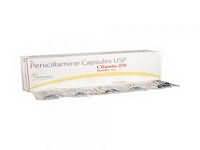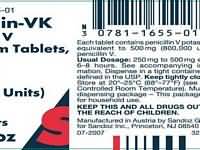sodium fusidate

CLINICAL USE
Antibacterial agentDOSE IN NORMAL RENAL FUNCTION
Oral: 0.5–1 g (as sodium fusidate) every 8 hoursSuspension: 750 mg every 8 hours (as fusidic acid)IV: 500 mg (as sodium fusidate) every 8 hoursPHARMACOKINETICS
DOSE IN RENAL IMPAIRMENT
GFR (mL/MIN)
DOSE IN PATIENTS UNDERGOING RENAL REPLACEMENT THERAPIES
IMPORTANT DRUG INTERACTIONS
Potentially hazardous interactions with other drugsADMINISTRATION
Reconstition
Use buffered solution provided, then dilute in 500 mL sodium chloride 0.9%Route
IV (peripherally), oralRate of Administration
Over 6 hoursComments
Unlicensed administration: 500 mg/10 mL buffered solution diluted to 100 mL and given via a central line over 2–6 hoursMinimum peripheral volume: 500 mg in 250 mL. (UK Critical Care Group Minimum Infusion Volumes for fluid restricted critically ill patients, 3rd Edition, 2006)OTHER INFORMATION
500 mg reconstituted with buffer contains 3.1 mmol sodium and 1.1 mmol of phosphateCan be administered neat via central line
See how to identify renal failure stages according to GFR calculation
See how to diagnose irreversible renal disease
Home








